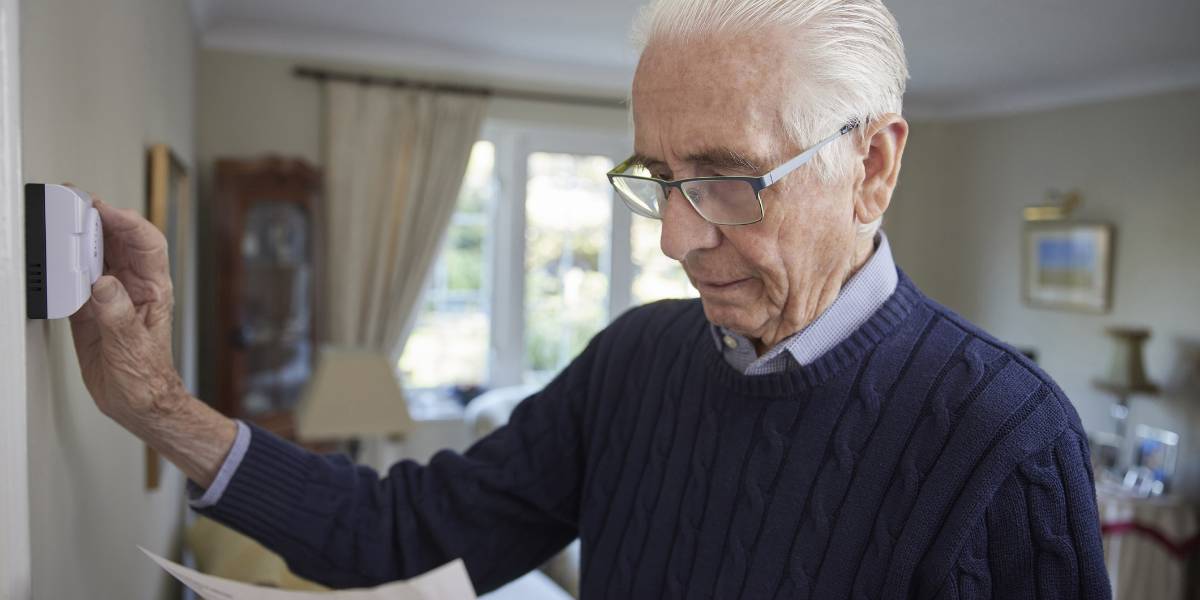People who took part in a programme that saw them getting their heating bills paid for by the Government in the winter were less likely to use NHS services whilst they were on the scheme.
Data shows that people on the scheme visited their GP and out of hours services less and needed fewer prescriptions.
Funded by BP, the heating programme took place in England and Scotland during the winter months.
James Smith participated in the heating scheme and said it was a “massive relief” for his lung disease.
- Obesity epidemic drives NHS prescription cost past £10 billion
- South London GPs to prescribe fruit and veg vouchers
A representative from the Government said: “We will continue to keep options under review to further help vulnerable households.”
Gillian Martin, Scotland’s Energy Minister, has announced that this result will help to advance energy support programmes.
The average annual bill for gas and electricity in 2021 was £1,138; however, these costs have significantly increased since the Ukraine war.
Currently, the average gas and electricity bill is £2,074 per year, but this is expected to drop to £1,923 in October.
Individuals who are required to use the heating to control a health condition often have to pay even more for their gas and electricity bill.
Mr Smith, who is from Middlesbrough, said: “If I walk from here to the end of the road I’ve got to stop and make sure I get my breath back and start again. It’s not nice. You’re gasping for air, breathing heavy.
“Keeping warm, doing what you want and knowing you can afford to. It eased the pressure on me and gave me a better mindset. I paid fewer visits to the GP during the scheme, and felt safer in my own home.”
More than 700 households from England and Scotland took part in the Warm Home Prescription study last winter.
All of the households accommodated an individual with a condition that could be affected by the cold, with most of those being older than the age of 65 and having respiratory problems.
The heating scheme paid for all of their energy payments between September 2022 and March 2023.
According to academics from Sheffield Hallam, people had a more positive outlook on life when they were on the scheme compared to when they were not.
Data highlights that treatment for people living in cold homes in England costs the NHS more than £540 million.
Dr Jessica Hollingsworth, GP, said: “The cost-savings indicated by the scheme make it worthwhile for the wider community and the NHS.
“The scheme showed a return on investment with this intervention, and it helps not only the patient but the wider community, so it’s worthwhile.”
She continued: “Keeping warm allowed patients the ability to go to work as normal, and contribute to childcare or family responsibilities.”
Amber Rudd, former energy secretary and Chair of the Warm Home Prescription task force, said: “The group is already in conversations with a number of health trusts keen to try similar schemes in their area.
- Children with obesity could be prescribed weight loss injections
- Patients to be urged to shop around for treatment via the NHS app
“It feels like it could be quite an important breakthrough moment for this particular cohort of people whose health conditions are made worse by being in a cold home and can’t afford to address that.”
Dr Rose Chard evaluated: “The findings are clear. Recipients stay warm, well, and out of hospital.
“We have an opportunity to create a service from the ground up that reshapes how we deliver proactive care for vulnerable households.”
Gillian added: “I look forward to seeing the trial findings and recommendations to feed in and inform our support already provided through our Energy Efficiency delivery programmes.”









